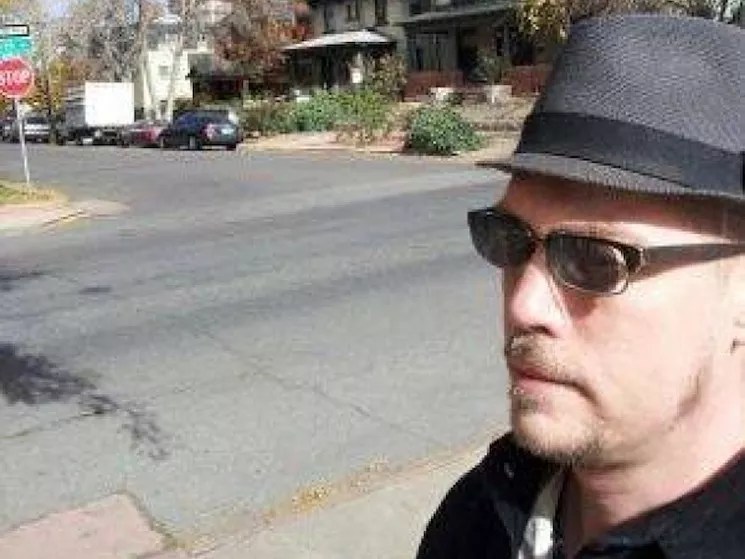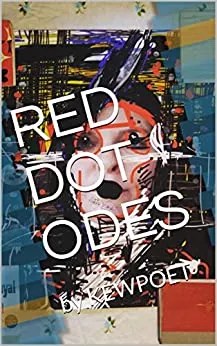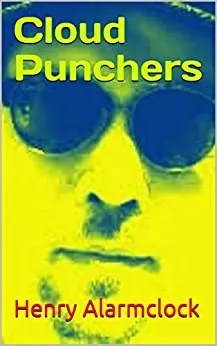
Zack Kopp

Audio By Carbonatix
Sit down, children, and hear the story of the literary scene in Denver way back in the inky depths of the 1990s, when smoking was allowed on the sidewalk outside Paris on the Platte, Highland was still the Northside, Elitch’s was winding down its long life at 38th and Tennyson, the Tivoli Brewery had just stopped being a mall, and Westword wasn’t yet of age. During these seminal times, venues all over Denver hosted open-mic nights for slam poetry, fiction-in-progress, music both practiced and extemporaneous. And a guy named Henry Alarmclock was a part of it.
Henry Alarmclock now publicly goes by his real name, Zack Kopp, and he’s jumping back into the fray with gusto. Gusto and a new small-press imprint called Camp Elasticity. We caught up with Kopp to talk a bit about the past, the literary present and his ambitious future.
Westword: Talk about Camp Elasticity. What’s the mission statement, and how did the idea for it come about?
Zack Kopp: I’m told there are only two types of independent publishers: “vanity” publishers, who’ll publish anyone for a buck, and “hybrid” ones, who edit and promote for a fee and are very selective. Classification depends on where they ask for the money – right in the pitch or later. Camp Elasticity is neither. It’s starting as a cool press that publishes and promotes great stuff of my choosing for a fee, learning as we go and getting bigger and better over time through dedication. The motto is: “How Far Can You Stretch?”
When news happens, Westword is there —
Your support strengthens our coverage.
We’re aiming to raise $50,000 by December 31, so we can continue covering what matters most to this community. If Westword matters to you, please take action and contribute today, so when news happens, our reporters can be there.
Run down the list of initial offerings from the new small press for us. How are writers stretching so far?

Camp Elasticity
Red Dot Odes is by Kewpoet, a friend from grad school exquisitely talented in painting and poetry who received her pen name from the late Tony Hoagland. Think e.e. cummings’s style plus reverent historics plus new dangerous deadly art in words and paint.
The Cool Zone is a disorderly yearbook of this disordered year, featuring better-known writers and artists alongside lesser-known and as-yet-unknown ones. It’s titled after a phrase I came across referring to the fertile, unpredictable time between established orders, where all results are equally likely.
Problem Contest is the latest chapter of my “fantastic biography.” [It] touches heavily on race issues in the U.S. along with such things as societal mind control by Facebook and the media (where everything is reduced to a problem contest) while living in an uninsulated apartment encompassed by obnoxious life noise from horrible neighbors.
Reality Stars was written during Bush II’s reign, its motive engine differing opinions about the word “God” in light of terrorism and xenophobia after 9/11- which I know is very heavy stuff, but that book is a joke, and I recommend readers keep their eyes on that through-line.
Cloud Punchers, by Henry Alarmclock. I’ve decided to start using that old pen name again for my flash fiction stuff, which is a lot more like automatic writing than anything contrived, but always seems to wind up smartly. The life-based stuff (Reality Stars and Problem Contest) is written with consideration, and the flash is written quickly, with no forethought or ego investment.

Camp Elasticity
Did you select your first crop of books?
I’d been wanting to publish a book by Kewpoet for years, so you could say that’s where the whole thing started. And I have all these connections with writers and artists and photographers of quality from kicking around as a zinester and freelance writer on the Internet, so the anthology seemed a natural next step. I’d literally just finished Problem Contest, thought of holding it back for a theoretical “real” publisher who could provide distribution, then thought of Bukowski saying, “If you’re going to try, go all the way,” or whatever he said. Same thing with Reality Stars. These are quality books, and however well I’m able to promote them, they’ll do as well as they do. The other new one, Cloud Punchers, is a sampling of the above described channeled wit, and giving the byline to Henry Alarmclock seemed appropriate, since it’s all my ectoplasm. I’m going to start hosting podcasts [about this] and posting them on the Camp Elasticity Facebook page.
You’ve been around the Denver lit and readings scene for decades now; can you talk a little about what it was like when you started? I’d imagine a lot of those venues are gone now.
Yes, I think all of them are except the Mercury Cafe – thanks, Marilyn – where Ed Ward used to host a reading every Friday. I was eighteen when I first read in the basement of Muddy’s Java Cafe down the street from there, and I think nineteen when I first hosted a reading at Café Euphrates on 17th and Franklin. All these places are now closed. From there I went to Coffee Grounds, the Black Pearl, and lots of other former venues. At one point I was hosting three or four readings a week.
The pinnacle of Henry Alarmclock’s career as a radical artist was Bleeding Tvs of Angels – a series of unscripted spontaneous music-and-art jams with the tag-line “You Are the Show.” I have to credit Devin Scheimberg and James Gonzalez as co-creators in these events, which were as weird as the Denver lit scene got in those days, including glow rooms, belly dancing, and more unspeakables fondly misremembered.
How else has the lit scene in Denver changed since the 1990s?
I took some time away from going to readings and art events when I went to grad school. My favorite thing when I went back in was a flash-fiction event at the Mercury called F-Bomb featuring exceptional talents like Steven Dunn, Nancy Stohlman, David Atkinson, Stina French and others. Ed Ward was hosting an event at the Mercury for a while called STORIES STORIES specializing in respectful attention to short fiction that was very cool. I’m very impressed with the businesslike attitude Brice Maiurro has taken in hosting readings. I’ve been inspired by the examples of Punch Drunk Press and Suspect Press. Spoken word read to improvised punk-rock backing, Punketry, is an excellent concept, and I hope to rejoin it as soon as the social distortion is lifted – not that I feel it’s an unfair imposition, necessarily.
What do you miss most?
That delicious illusion of which I partook for about ten years as Henry Alarmclock. I was the only weird young kid with a pen name for a little while and it gave me a swelled head. Like I was finally getting what I deserved in a wonderland where everything was possible. Hopefully everyone gets a little dream time like this, but maybe not.
What are your hopes for both Camp Elasticity and Denver’s literary scene writ large?
Camp Elasticity has a couple of new titles by other authors slated for the coming year, one by a former associate of Larry Flynt and the memoirs of a child star turned webcam girl. It’s a great feeling, having stuff on deck like that, but no contracts have been signed, so I won’t name names.
Any hopes for Denver’s lit scene?
Considering past and continued lockdowns putting a damper on reading size and frequency, I wish us all best luck.
Want to know more? Kopp and Camp Elasticity are open for inquiries at campelasticity.com@yahoo.com. (No, that’s not a typo.)